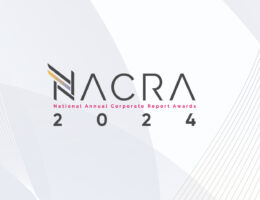By Aufa Mardhiah & Anis Zalani
Thereis no mistaking the adversarial relationship between the tax authorities and taxpayers. It is so pervasive that the taxman is seen as the bad guy, seeking to make the people and corporations to owe up to their payments to the government’s coffer.
Any chance of changing the face of the tax collectors? Well, an attempt is underway.
One of the components, on the corporate front, is known as cooperative compliance.
“The challenge is that we’ve always had what we call an adversarial relationship between the tax authorities and taxpayers. So, the issue is about taxes, leading to improvement and trying to regain this public trust. That is crucial so that everyone can function effectively in the system. We do that because you need to improve compliance, you need to increase the tax revenue collection,” tax industry veteran Dr Veerinderjeet Singh told a recent conference in Kuala Lumpur.
The issue of trust is important enough that it warranted a panel session of its own at the Malaysian Institute of Accountants (MIA) annual event a fortnight ago. It was entitled “Overcoming trust displacement through cooperative compliance initiatives”.
The brief for the session had this to say: Strengthening cooperative compliance can uplift tax governance by building a reciprocal relationship of trust and co-operation between businesses and tax authorities.
As a bridge between our stakeholders, the profession can champion cooperative compliance to heighten accountability and transparency, improve tax administrative efficiency, enhance certainty for business, and foster trust and confidence in the tax system.
Why The Introduction of Cooperative Compliance?
“Largely because it assisted building trust,” said Veerinderjeet, noting that it primarily looked at the larger entities. It was about an attempt to establish a better relationship between those taxpayers and tax authorities.
“The reliance here is on inter- nal controls of the entity because the controls are functioning well, you’re collecting the data that you need to be able to import the tax liability. And there is a fair level of assurance that you are having a relatively good system to capture the data,” he said.
This comes under the Tax Corporate Governance Framework (TCGF). It establishes the techniques and processes within the organisation to identify tax risks, assess risks and set out the appropriate actions to mitigate the impact of those tax risks.
An effective tax corporate governance framework can cultivate a level of confidence that the organisation is reporting and paying the right amount of tax, enabling organisations to achieve greater certainty in relation to their tax affairs.
TCGF was introduced by the Inland Revenue Board (IRB) in April 2022. It brings into action tax cooperative compliance, an initiative for promoting better tax compliance developed by a forum under the Organisation for Economic Co-operation and Development (OECD).
Tax cooperative governance has set out expectations for transparency and good tax governance by the taxpayer to provide a high degree of reassurance as to the control of tax risk processes and the absence of aggressive tax planning, according to a blog entry by PWC Malaysia.
It noted that the global trends outline how tax authorities are pushing for more transparency and governance. For instance, by providing definition and their expectations (such as in the UK, large businesses are required to publish their tax risk policies or strategies, Malaysia and Singapore have Corporate Income Tax programmes) or by types of taxpayers (the UK, Malaysia, Singapore — by size of operations, Australia — by risk profiles).
After the successful implementation of the Assisted Compliance Assurance Programme (ACAP) in Singapore, PWC Malaysia highlighted the recent rollout of their Tax Risk Management and Control Framework for Corporate Income Tax (CTRM).
As there has been a greater push for tax corporate governance or tax control frameworks globally, in a manner that is consistent with OECD guidelines, Malaysian groups are revisiting their tax policies and controls, it added.
TCGF is suitable for all sizes and types of businesses that give priorities and resources to corporate governance matters, according to information at IRB’s website. It noted that the programme is currently being implemented as a pilot project, expected to run from June 2022 to June 2024. The programme will be open to all organisations once the pilot project phase is over.

Making It Work
At the moment, there are about a dozen large corporations that are involved in IRB’s pilot project for cooperative compliance, with one of them being the national oil company Petroliam Nasional Bhd (Petronas). Naturally, transparency and mutual trust are key elements. Without doubt, these are areas that the authorities would have to work hard to win the support of the taxpayers.
In making it work, IRB CEO Datuk Dr Mohd Nizom Sairi said that transparency is mutual. He shared his personal experience when he started work with the tax authority in 1985. “Generally, the taxpayers then believed that the less that the revenue (IRB) knows about them, it’s better for them. But actually, it’s the other way around,” he told the conference. Another tax expert observed that the framework would work best if it was adjusted to the needs of the local corporations, especially the smaller companies. Thannees Tax Consulting Services MD SM Thanneermalai said he has been talking about cooperative compliance for some years now, minus the buzzwords used by OECD.
“We need to Malaysianise it. You can’t just take it from the OECD. You have to bring things to ground reality,” he said. “TCGF is excellent, and I support it, but it has to be made a lot easier.”
Commenting on trust, Thannee, as he’s known within the tax fraternity, agreed with IRB’s Mohd Nizom that trust is a two-way thing.
“At the end of the day, what OECD and all the others talk about is to provide you with certainty.
It provides you comfort that the information given is correct, tax is paid on time and that (the authorities) are collecting the right amount of tax. At the end of the day, the authorities want to collect the right tax. How do you build trust? All multi-national companies (MNCs) today are already focusing on spending resources on compliance,” he said.
However, he does not see a similar uptick in the compliance fer vour in Malaysia. Here, he said a conference on compliance will not attract the crowd.
“Our mindsets haven’t entirely changed. There is change at Petro- nas because they are exposed to the international environment,” he said.
Thannee also highlights the importance of certainty to the taxpayers. “They got to see that, at the end of the day, it’s not just the revenue or people collecting the right amount of tax, but what they seek — certainty, communication and relationships.”
On Petronas’ involvement in the pilot project, its senior GM for group tax Rihanna Haryanti Mohd Ramli said the company, being an MNC, with some 350 companies operating in 60 countries, has been exposed to various devices.
The Malaysian oil giant had its initial exposure to cooperative compliance due to its presence in the UK. When it got wind that IRB was embarking on the TCGF, Petronas decided to jump on board. “It’s all about having the ease of mind,” she said.
For the long run, though, many of the tax executives are hoping that tax authorities would not depart from its current course. That, in itself, would provide corporations certainty.
When talking at the MIA conference, Rihanna Haryanti, too, had raised the issue of certainty. She said one of their concerns is about sustainability. “We are starting on the right path. Would the same environment fully continue? That, to me, is still a question mark… When a leader has a particular way of looking at things, it cascades down,” she said.
Compliance and Enforcement
IRB is the authorised authority in Malaysia’s tax system that deals with direct taxes and it is an agency established by the finance ministry to serve as an agent in assessing, administering, collecting and enforcing the payment of income tax and other taxes under the board’s jurisdiction.
Nonetheless, what motivates individuals and businesses to pay taxes? A report titled “Tax Reforms — The Way Forward for the Malay- sian Tax System” by the Malaysian Institute of Certified Public Accountants (MICPA) with Deloitte stated that the inherent willingness to pay tax can substantially aid the government in the design and administration of tax policy, particularly in developing nations with poor compliance rates.
The report also stated that voluntary compliance, however, is decided not simply by tax rates or the prospect of penalties, but by a variety of socioeconomic and institutional factors that differ across locations and people.
“Tax administration needs to have the conditional formatting — you need to identify what required changes so that you can see what you need to look at to get you by the system,” said Veerinderjeet, the immediate past president of MIA. He is also an independent non-ED at public-listed UMW Holdings Bhd.
An OECD study, mentioned in the same report by MICPA and Deloitte, recommended that tax administrators simplify the process of filing tax returns, while the government ensures transparency and accountability in tax revenue to improve trust in government and tax administration.Aside from that, the report stated that digitisation is also important in tax administration to boost tax administration efficiency and effectiveness.
According to the report, this process has helped to reduce burdens to varying degrees for different taxpayer segments, for example, improvements in taxpayer services such as e-filing, e-pay- ment, online self-service tools and targeted help such as online live chats have made it easier for taxpayers to understand and meet their tax obligations.
However, despite the advancements which have benefitted both taxpayers and tax administrators, the report highlighted that the existing tax administration system still has substantial limitations in terms of the outcomes it can produce.
Among the limits are the time and money required to pay tax responsibilities. Taxpayers must actively participate in understanding, processing, calculating and reporting tax responsibilities, as well as maintaining records for tax audit and investigation reasons. As a result, the overall costs of compliance, including both monetary and opportunity costs, can be high.
In the earlier mentioned report, Veerinderjeet stated that an income tax system is based on the willingness of citizens to pay their taxes voluntarily — which requires the tax agency to adopt a philosophy of having outreach and educational programmes to promote voluntary compliance.
“Studies on taxpayer behaviour do seem to suggest that services to taxpayers that facilitate the reporting, filing and paying of taxes, or that impart education or information among citizens about their obligations under the tax laws, may in many circumstances constitute a more cost-effective method of securing compliance than measures designed to counter non-compliance.
“This would involve providing certainty and clarifying legal ambiguities, communicating clearly and assisting in lowering the costs of compliance to taxpayers. There is much to be gained from viewing taxpayers more as clients than would-be defaulters,” he said in the report.
The article first appeared in the Malaysian Reserve weekly print edition and subsequently on the Money section of the online Malaysian Reserve on 26 June 2023. Article published with permission from the Malaysian Reserve.






